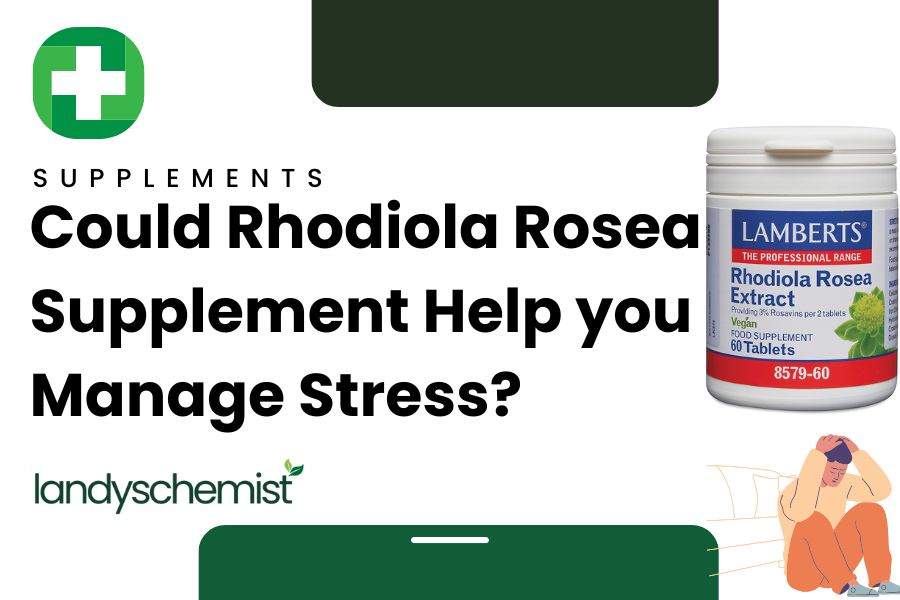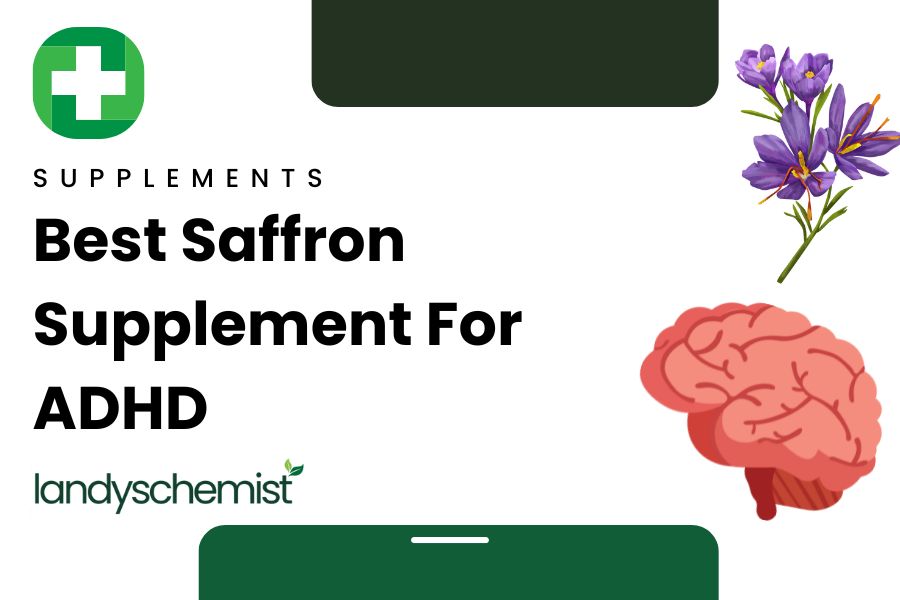
Mitesh Desai on Nutrition and the Success of Landys Chemist
Many people believe that a well-balanced diet provides all the nutrients we need, but Mitesh Desai, director at Landys Chemist, has a different view. He points out that it's nearly impossible to get all the necessary nutrients from food alone, especially with modern farming practices that have depleted soil quality. Mitesh believes supplements play a key role in filling the nutritional gaps that food can no longer cover.
Healthnews spoke with Mitesh about his journey from finance to the health industry. After spending five years shuttling between London and New York as a finance expert, Mitesh found himself burnt out and in search of a new direction. As fate would have it, his sister asked him to help digitize their family pharmacy. What started as a favor quickly snowballed into a passion for nutrition and e-commerce, paving the way for his role today as director of Landys Chemist.
In this interview, Mitesh discusses popular supplements such as CoQ-10 and omega-3, which he personally uses, and the growing interest in medicinal mushrooms like lion's mane and reishi. He also touches on shifting trends in the industry, including the rise of NMN supplements and the move towards liposomal and food-grown vitamins for better absorption, among other things.
Q: To start with, could you give us a brief introduction about yourself and share what fuels your passion for your role in nutrition?
A: Of course! Thank you so much for having me. I guess I stumbled into this business by accident in truth; I used to work in finance and then after about five years between London and New York I was left feeling a bit underwhelmed and burnt out. I did all sorts of stuff after that; including teaching Economics and importing Beer from East Africa and then my sister asked me to help her get our family pharmacy digitized and everything just snowballed from there.
I love nutrition and E-Commerce equally these days! Nutrition is amazing; there are so many products, the industry is going through a period of huge technological improvement, and in the post-COVID world, everyone is so much more aware of the benefits that supplementing gives. It’s so cool now that you’ve got gym goers buying protein, loads of people taking collagen for their beauty needs and then regularly discovering that this stuff really works and as a result, they’re often going out and exploring what else might improve their wellness and lives in general.
Q: Can you tell us a bit about Landys Chemist? What do you think is the secret behind the company’s success, especially considering the recent awards (local business award and pharmacy award) that the company received?
A: In-store, our success comes down to our customer service. Our staff know our customers on a personal level and I think people really enjoy that experience of being greeted by name instead of the way most businesses have gone where it’s all faceless nameless transactions. Our service doesn’t stop there; we are always focused on offering great quality products in-store and as a business, we’re always on the lookout for the latest trending items or health kicks so that we’re somewhere you can come to get great quality impartial advice.
I think it’s also about the range of our expertise. You can walk into Landys and be advised by a pharmacist, a naturopath, a nutritionist, a homeopath, and I’m sure some other qualified health professional who I can’t think of right now. We used to have a doctor on site too most of the time. People love that ability to walk in and have a proper conversation about their health and explore every possible route to feel better.
I like to think we’re also a relatively forward-looking business; we went virtually plastic-free about 7 years ago. It was a huge change but we did it overnight and it wasn’t to show off or gain anything; we just felt it was the right thing to do. Being plastic-free actually ends up costing us quite a lot of money each year but we persist with it because, in the current climate, we remain convinced it’s essential.
Q: Let’s talk about some of the products you offer. Can you explain the science behind COQ-10 and fish oil, and why you personally swear by these supplements?
A: Two of my daily supplements! I love COQ-10 for a lot of reasons; it influences so many parts of the body. It offers immunity benefits, energy benefits, it improves sleep quality and it’s something that your body produces less and less of as you age. This means it’s so important to provide your body with COQ-10 as it can’t make enough of it the older you get. I always liken taking COQ-10 to drinking a cup of coffee; I personally experience an energy and attention boost that lasts for virtually the whole day when I’m using it.
Omega-3 is a weird one. I take it because it’s something our body doesn’t produce naturally and so the only way to obtain it is through supplements or diets. Unfortunately because of overfishing (even the ‘sustainable’ kind), the fish we eat are getting less and less nutritious which makes supplementing increasingly important. Omega-3 offers benefits for eyes and memory so while I don’t “feel” any different using it I feel like the studies make me confident that in the long term, I will experience the benefits and be thankful I used it all these years.
Q: There’s been increasing interest in medicinal mushrooms like reishi and lion’s mane. Studies suggest that these mushrooms might offer benefits like enhanced cognitive function and immune support. What’s your perspective on the role of mushrooms in a balanced health regimen?
A: Mushrooms have really truly exploded in the past few years. Reishi has been on the scene for over a decade but lion’s mane, cordyceps, and a range of others really just came onto the scene in a big way in the recent past. I think mushrooms are great; it’s an alternative pathway to achieve things that many other supplements are already trying to do. For example; let’s say you struggle with keeping your attentiveness up — you might choose to take omega-3 and green tea to combat this. There’s no reason you couldn’t also try lion’s mane to improve your alertness and focus and so I love that it gives people another angle to approach their health.
Q: There’s a lot of debate about supplements. Some argue that a well-balanced diet should provide all the necessary nutrients. What’s your take on this controversy?
A: I think the truth is that what we consider a well-balanced diet is something that’s in flux already and it’s virtually impossible to get a balanced diet from what you eat unless you stay home and don’t work for a living; that’s how much time it would require to source good ingredients, prepare all your meals at home and then eat!
People often look at RDAs/NRVs and assume if they’re getting 100% of all those things then they’re probably going to be healthy. I think this is a falsehood; those numbers were devised during World War II when people were living on rations. The government felt obliged to prove that it wasn’t starving people to death and so came up with the NRVs, which in many cases, we still use today. The government wanted those numbers to be as low as possible to help keep costs down; how can we look at those and assume they’re still relevant?
In addition, over-farming has spoiled a lot of the soil on earth. As a result, the crops we grow contain less nutritional value than crops that were being grown 40–50 years ago. This alone means it’s more and more essential to ensure you’re getting your nutritional needs somehow and in a world where it’s becoming increasingly difficult to get them from food that means that supplements hold the key.
Q: Are there any common misconceptions about supplements that you think need addressing?
A: I guess a lot of people think supplements are only for people who have nothing obviously wrong with them. I would argue that you often don’t know what the peak version of yourself can feel like until you’re taking supplements. In the U.S. there’s a much stronger culture of supplementing, possibly because healthcare isn’t universally free like in the UK, and I think if the UK population started to be more focussed on supplementing it would probably help the NHS a great deal and bring about savings for the economy as a whole.
Q: Can you share some insights on the demographics of your customers? Which groups of people are most likely to turn to supplements, and are there specific reasons or needs driving their choices?
A: The majority of our customers are women. This might also be because they buy these items for their husbands and sons! I think most of our customers have realized that they want a quality product; like with most things in life, you really do get what you pay for with vitamins. If you buy low-quality products it’s often the case that it might not have the stated amount in the bottle or might be made with unnecessary binders and fillers to extend shelf life but ultimately this reduces the effectiveness and quality of the product. Our customers understand that there are cheaper options out there but they favor trusted brands and top-quality products.
Q: Given your extensive experience, have you noticed any trends or shifts in the kinds of supplements people are interested in over the years? For example, have there been increasing interests in adaptogens or cognitive-enhancing supplements?
A: I think right now there’s a big shift towards NMN supplements, which many people are taking for their reported anti-aging benefits. There’s a lot of conversation about this, and we’re seeing new brands launching and existing brands releasing different versions all the time. There’s also a significant shift from a technology perspective.
In the past few years, many brands have moved towards making liposomal products, which dissolve into fat cells rather than the water in your body, enhancing absorption. Additionally, many people are interested in food-grown supplements, such as D3 extracted from actual foods (e.g., mushrooms) rather than other sources. This also enhances absorption and improves the benefits of the products in question.




